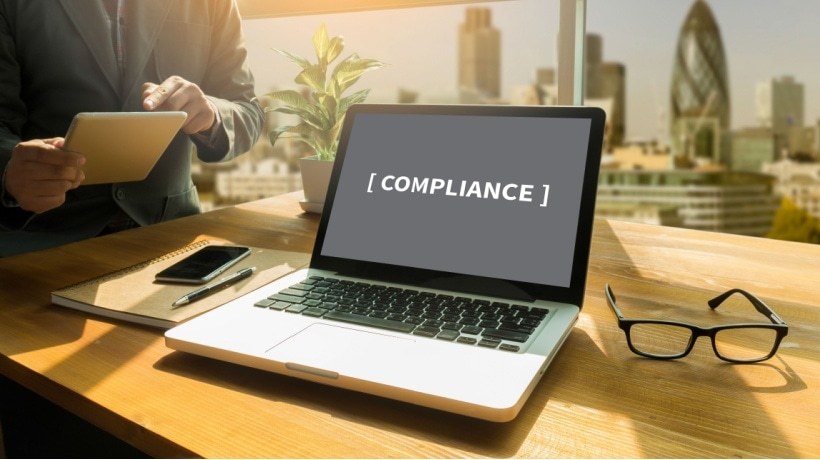Compliance Retention In Distributed Workforces: A Challenge
Remote and global employees often struggle to retain compliance knowledge due to long, one-size-fits-all training, lack of reinforcement cues, and competing priorities in virtual settings. As a result, knowledge fades quickly, putting organizations at risk of noncompliance. Maintaining compliance retention in distributed workforces becomes a challenge due to varied regional regulations, fragmented data management, and inconsistent training.
Companies operating across multiple locations must navigate local labor laws, wage regulations, and data privacy requirements. Ensuring real-time access to updated policies and consistent reporting is challenging. Limited visibility and weak coordination increase the risk of fines and reputational harm. How can organizations minimize these risks caused by poor compliance knowledge retention?
Microlearning For Lasting Compliance Retention
Microlearning provides a practical approach to enhancing compliance retention across distributed workforces. By delivering short, scenario-based modules at regular intervals, employees stay continuously refreshed on critical policies, from labor laws and data privacy to workplace conduct. This bite-sized, reinforced learning ensures that compliance knowledge is not just completed once but remembered and applied in daily decisions. Microlearning boosts recall, adapts to diverse roles and geographies, and ensures compliance behaviors stick across the workforce.
Technology, proactive training, and strong leadership are essential for minimizing these risks. Together, they foster a culture of compliance, enabling employees to act responsibly, avoid costly mistakes, and protect the organization's reputation.
Scenarios Without Microlearning
Let's look at two scenarios related to poor compliance recall.
Scenario 1: Data Privacy
Without microlearning: While traveling, Rina, a manager, connects to free airport Wi-Fi to send confidential client files without realizing the network is unsecured. She had completed her annual data privacy training weeks back. She vaguely remembers a rule on the use of company-approved secure networks, but can't recall the details. Public Wi-Fi (airports, hotels, cafés) is strictly prohibited without a VPN, as it exposes information to interception.
Scenario 2: Anti-Bribery Across Borders
Without microlearning: Arjun, a remote sales executive abroad, gets a festival gift basket from a supplier. Unsure of the rules from last year's compliance training, he assumes it's culturally acceptable and accepts it without disclosure—putting the company at compliance risk.
Scenarios With Microlearning
Now, let's see how microlearning could strengthen compliance knowledge and improve day-to-day decision making. Here are the narrative contrasts.
Scenario 1: Data Privacy
With microlearning: Rina, a manager, completed her annual data privacy training. But her training does not end there. She receives refresher courses or memory boosters weekly or fortnightly. Once, while travelling, she needed to send confidential client files. Can she use free airport Wi-Fi to send these files? She remembers having undergone a similar scenario in one of those refresher courses.
The quiz had reinforced the guideline: "Always use the company-approved VPN when handling confidential data. Public Wi-Fi (airports, hotels, cafés) is strictly prohibited without a VPN, as it exposes information to interception. Use only secure, password-protected networks or corporate-provided connections." Therefore, she connects to the IT department to check for other options.
Impact: Continuous reinforcement helped her retain and apply the rule at the moment of need.
Scenario 2: Anti-Bribery Across Borders
With microlearning: Arjun receives monthly microlearning nudges on anti-bribery and anti-corruption, including gifts and hospitality. One scenario highlighted: "A supplier offers a festival gift worth above the policy limit—what should you do?" He had learned the correct action, which is to disclose compliance and politely decline. When offered the basket, he recalls the rule instantly and manages it correctly.
Impact: Microlearning reinforced policy recall, enabling confident, compliant decision making.
Microlearning For Compliance Retention
So, what does microlearning consist of in this context?
- Scenario-based refresher courses with quizzes: Short, situational challenges (like Rina's hotspot decision or Arjun's gift acceptance) that reinforce "what to do."
- Bite-sized learning nuggets: Quick, focused content (videos, infographics, podcasts, and animations) that explains one rule or policy at a time.
- Spaced repetition nudges: Scheduled reminders via email, chatbots, or LMS notifications to keep rules top of mind.
- Interactive simulations: Branching stories where employees practice making compliance choices.
- Job aids and micro-references: Quick-access tools like checklists or one-pagers to guide decisions at work.
- Gamified challenges: Leaderboard quizzes, flashcards, or red-flag spotting games to make compliance recall engaging.
The organization's Learning and Development (L&D) can create customized and general eLearning paths where eLearning courses, webinars, simulations, nuggets, and other microlearning assets are scheduled at predefined intervals.
Why Compliance Knowledge Fades
Compliance knowledge often fades because traditional one-time, lengthy training overwhelms employees with too much information at once. For distributed teams, the challenge is even greater since they miss out on daily, in-person reinforcement of policies. Added to this, competing work priorities often push compliance rules to the background, while the complexity of policies themselves makes details easy to forget over time.
Benefits Of Microlearning For Compliance
- Delivers short, focused content that is easy to absorb and recall.
- Reinforces key policies regularly through scenarios, nudges, etc.
- Fits into employees' daily workflow.
- Boosts retention and reduces costly compliance mistakes.
- Increases engagement with gamified, interactive formats.
Conclusion
For remote and global workforces, retaining compliance knowledge is critical to safeguard trust and meet regulatory demands.
We can design engaging microlearning programs, deliver timely refreshers, and provide the right mix of technology, content, and analytics. Together, we can ensure compliance knowledge is not only retained but actively applied, minimizing risks and strengthening a culture of accountability in your organization.
Our AI-powered Learning Management System (LMS), KREDO, empowers you to design both customized and general eLearning paths tailored to different roles and locations. With KREDO LMS and the Prodient.io authoring tool, you can create quick refreshers, nudges, and microlearning nuggets in just minutes.
At Tesseract Learning, our learning and visual architects constantly challenge their approaches to design, develop, and deliver effective L&D programs. To learn more about our products and services and how we can help you, contact us.










